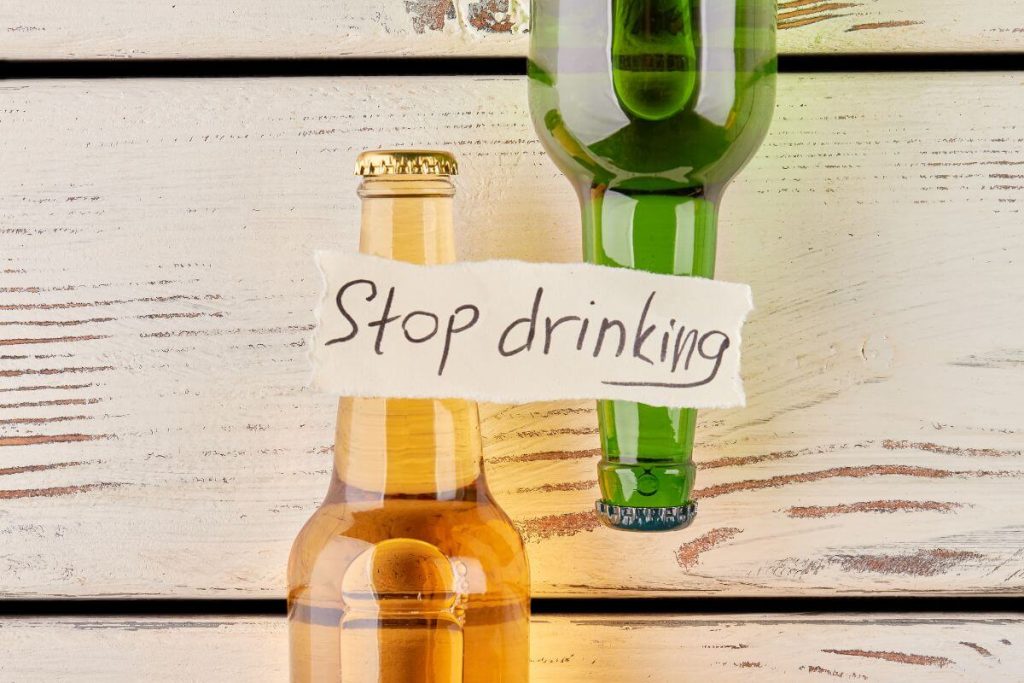Destination Hope would like to acknowledge April as Alcohol Awareness Month. This time provides us all with a necessary opportunity to confront and discuss the realities of alcohol use disorder in America.
The United States has long struggled with alcoholism – according to figures from the National Institute on Alcohol Abuse and Alcoholism (NIAAA), over 15 million adults aged 18 years or older were diagnosed with alcohol use disorder (AUD) in 2018 alone.
In this article, Destination Hope looks at the benefits of alcohol awareness and the need to overcome stigma and other obstacles that can prevent people from getting the alcohol use disorder treatment they deserve.
The Need for Alcohol Awareness
Yet many people are unwilling to talk about it openly due to the stigma that inevitably surrounds this affliction. It’s crucial that during this month we challenge ourselves and those around us to understand AUD more deeply, so that no one feels ashamed for asking for help along their recovery journey.
It can indeed be life-saving for many people who might not otherwise seek assistance if family, friends or loved ones continue pushing aside issues of mental health as tough subjects or too difficult to approach. Ultimately the goal should be that no person suffers with alcohol addiction simply because they were ashamed to tell anyone or ask for help.
What is Alcohol Awareness Month & Why is it Important
April is Alcohol Awareness Month, a time to raise awareness about the dangers of excessive drinking and addiction. It is important to recognize the impact alcohol can have on an individual’s physical and mental health, relationships, and overall well-being.
Alcohol Awareness Month is an opportunity to educate ourselves and those around us about the risks of alcohol abuse, the signs of addiction, and the resources available for those seeking help.
Key Alcohol Awareness Goals:
- Increasing awareness of how common Alcohol Use Disorder (AUD) is.
- Reducing stigma and shame which keep people from asking for and getting help.
- Ensuring that people know help and treatment for AUD is available and how to access it.
- Overcoming other obstacles between people and the alcohol treatment they deserve.
- Empowering people to advocate for themselves and loved ones with AUD
Statistics on Alcoholism in the U.S. (Including a few facts)
Alcoholism is a serious issue that affects many Americans. According to statistics, 14.1 million adults in the U.S. are estimated to have alcohol use disorder (AUD). Furthermore, alcohol-related deaths are the third leading preventable cause of death in the country, with an estimated 88,000 fatalities each year. If you or a loved one are struggling with alcohol addiction, know that help is available and recovery is possible.
3 Key Stats on Alcohol Addiction in the U.S.
- 14.1 million adults in the U.S. have an Alcohol Use Disorder
- Alcohol-related deaths are the third leading preventable cause of death in the U.S.
- More than 88,000 Americans die due to alcohol-related causes every year.

Overcoming Stigma and Misconceptions About AUD
Misconceptions and stigmas can be incredibly harmful, perpetuating negative attitudes toward certain individuals or groups in society. It’s easy to fall into the trap of believing stereotypes or misinformation, but it’s important to take a step back and question these assumptions. When we approach others with compassion and open-mindedness, we can start to break down the barriers that divide us.
The fact is that Alcohol Use Disorder (AUD) is a disease. It is not the fault of the person experiencing it. It is their responsibility to seek treatment for AUD and to follow recommendations of course. But they should never be shunned, blamed or shamed for their addiction to alcohol. This helps no one and causes a great deal of harm, in fact, by preventing people from being open and honest and asking for help with alcohol.
Remember to Be Kind to Yourself and Others
Destination Hope wants to emphasize the importance of being kind and compassionate towards yourself and others, particularly where addiction is concerned. The stigmas associated with alcohol misuse and going to rehab for alcohol both contribute to preventing people from getting the help they deserve. Remember that we are all human and bound to make mistakes.
It is how we respond to our mistakes that really matters. This is also where many of life’s most important lessons come from. Everyone deserves some understanding though. Everyone also deserves help overcoming alcohol addiction or any other substance use disorder. It is up to all of us to change the conversation around treatment for alcohol use disorders and reduce any stigma.
Remember:
- Everyone makes mistakes.
- People deserve empathy and kindness.
- It’s okay to ask for help when you need it.
- We all need to work to overcome stigmas and shame around alcohol
How to Ask for Help for an Alcohol Use Disorder
As human beings, we all go through rough patches and tough times in our lives. During such times, it is perfectly normal to need help and support from our friends, family, or even a professional. Asking for help can be daunting, but it is important to remember that it does not make you weak or incapable.
In fact, it takes strength and courage to ask for help. If you are struggling and need assistance, there are resources available to you. Remember, asking for help is a sign of strength and bravery, and there is absolutely no shame in seeking support when you need it. Destination Hope has been helping people overcome alcohol addiction for more than 20 years. We can help you or your loved one too. We’re only a phone call away at: (954) 302-4269

